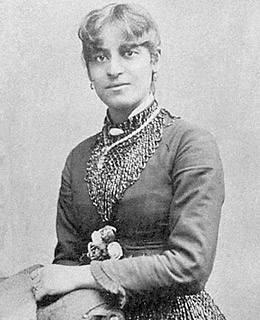
In the years after the Civil War, Virginia was not an easy place to live. The divide between rich and poor was as wide as ever and the chasm was considerably worse for newly emancipated blacks. Several benevolent societies were founded to help alleviate the postbellum poverty that had swept the country. In Richmond, the Independent Order of St. Luke was created, but what started as charity soon became empowerment because of the tenacity of Maggie Walker.
The daughter of ex-slaves, Walker was born in 1867 and raised in poverty. The family lived in an alley house supported by wages from taking in laundry. A gifted student, Walker finished high school at 16 and began teaching, only to work for the St. Luke organization, which later promoted her to executive secretary. While with St. Luke, she helped it to establish a newspaper, a printing press, an insurance company and a college educational fund. But at the same time, she saw that few if any blacks knew much about finance and investing, and none of them could get loans from white-owned banks. So she set out to convince the community that their money should be pooled and lent out as a savings trust.
In 1903 she convinced those who would listen to her to bring together about $9,400 and opened the St. Luke Penny Savings Bank, becoming the first woman of any race to preside over a savings institution at a time when only a handful of women held power in corporations. "We need a savings bank," she said. "Chartered, offered and run by the men and women of this order. Let us have a bank that will take nickels and turn them into dollars."
Along with Madame C.J. Walker (no relation), who was born the same year, she championed the cause of self-sufficient economic empowerment for African Americans. She joined the popular call of black leaders of the day advocating entrepreneurship as a path to true social freedom.
Bank customers deposited a nickel a week into their accounts, and the assets continued to multiply. By 1913, the bank had collected $300,000 in assets. By 1920, it had helped to purchase 600 homes. In 1929 the Great Depression struck, crippling financial institutions nationwide. But St. Luke Savings had enough in holdings to absorb all the other local black-owned banks and become Consolidated Bank and Trust, holding assets of $400,000. The bank is still headquartered in Richmond today.
Despite several personal hardships — including her son being tried and acquitted for the accidental killing of her husband, Armstead — and suffering from diabetes, which resulted in her being confined to a wheelchair, she continued as a philanthropist and civil rights activist, holding executive positions in the NAACP and the National Urban League until her death in 1934.